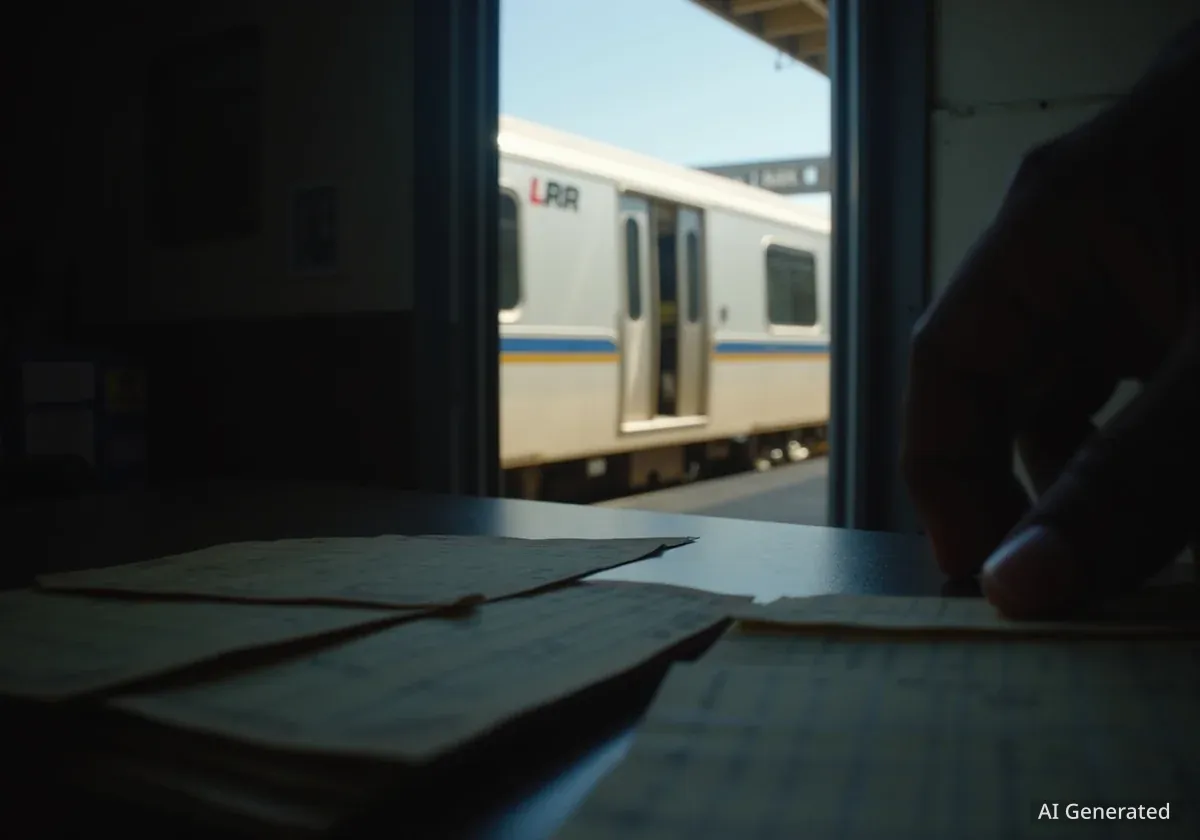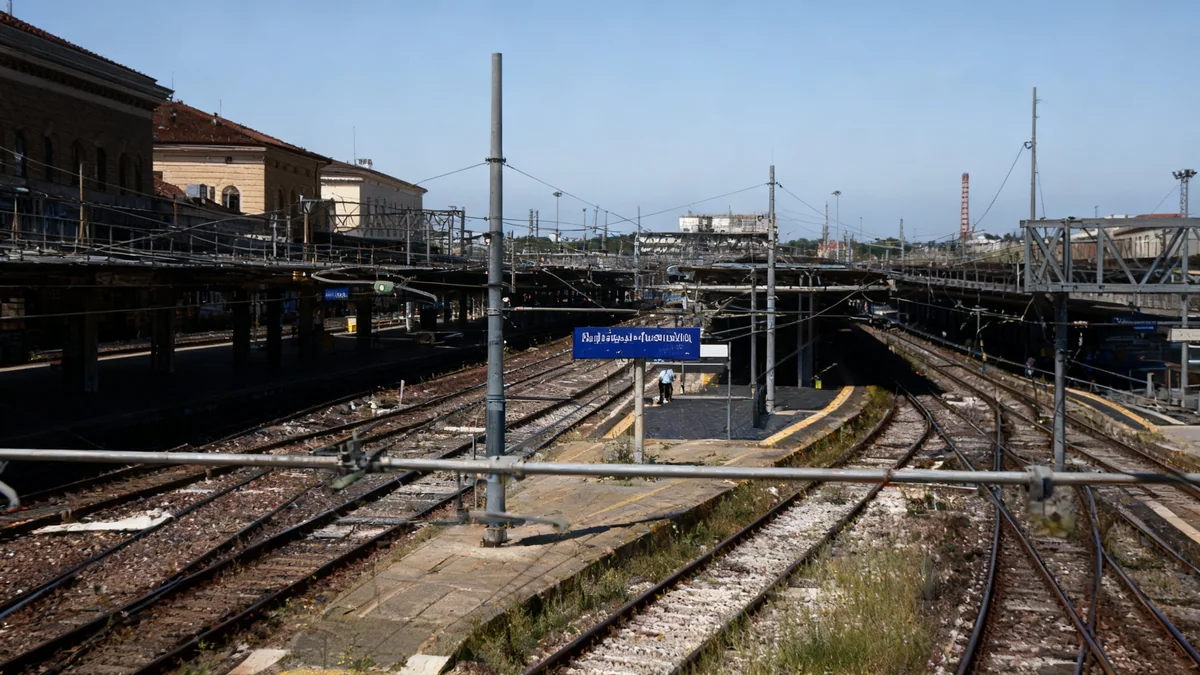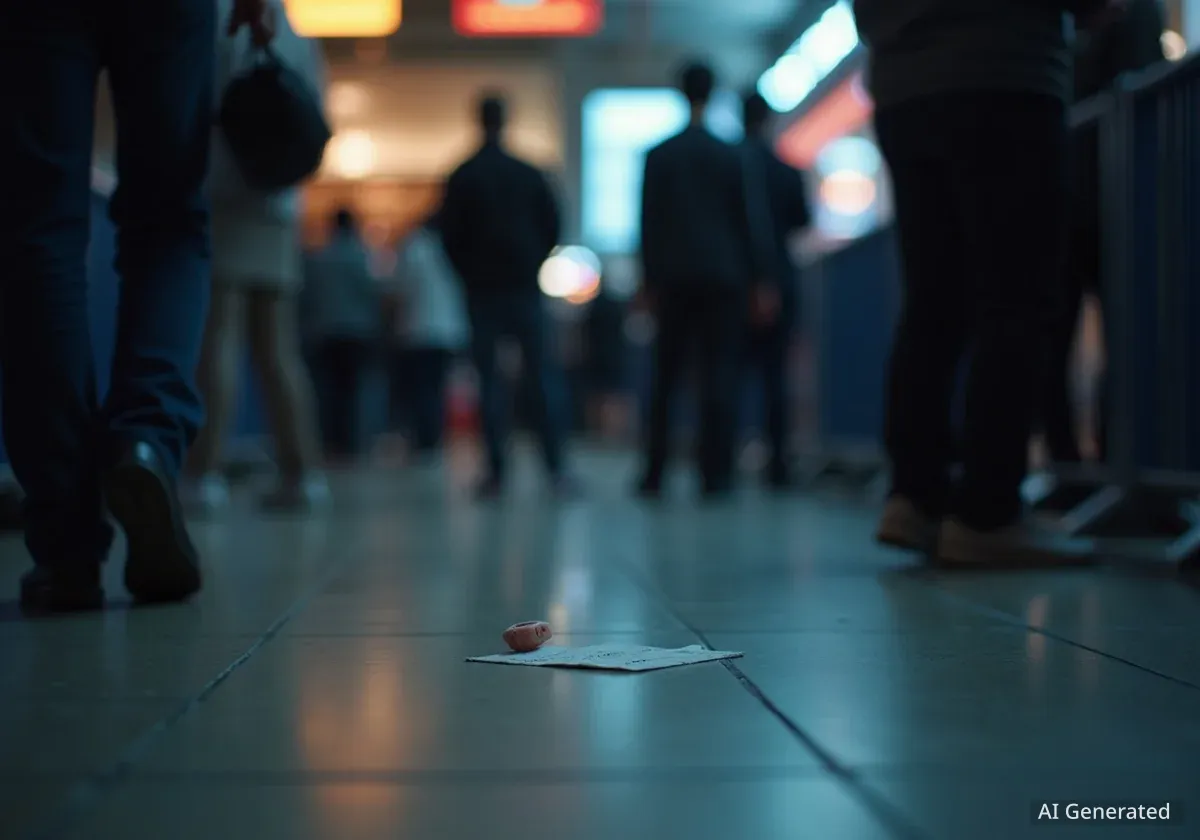A significant dispute has emerged between Suffolk County District Attorney Ray Tierney and a member of the Metropolitan Transportation Authority (MTA) board. The conflict centers on the decision not to pursue criminal charges against 36 Long Island Rail Road (LIRR) employees. These workers were accused of a time theft scheme, allegedly using fake swipe cards to clock in and out for each other and collect pay for hours they did not work.
The accusations involve LIRR facilities, including the one in Ronkonkoma. Despite the allegations, the District Attorney's office stated there was insufficient evidence to proceed with criminal prosecutions. This decision has drawn sharp criticism from an MTA board member, sparking a public defense from DA Tierney.
Key Takeaways
- Suffolk DA Ray Tierney declined to criminally charge 36 LIRR workers in a time theft case.
- MTA board member James O’Donnell criticized the decision, calling it a 'mistake.'
- Tierney cited poor MTA recordkeeping as a reason for insufficient evidence.
- Nearly all accused employees received unpaid suspensions; 12 resigned or retired.
- Six employees still face disciplinary proceedings that could lead to termination.
Investigation and Allegations
The investigation into the LIRR time theft scheme revealed that dozens of employees were allegedly involved. They reportedly used fraudulent swipe cards to manipulate attendance records. This allowed individuals to be recorded as working when they were not physically present, leading to unearned pay.
The alleged activities took place at various LIRR facilities. Ronkonkoma was specifically mentioned as one of the locations where these practices occurred. The scale of the alleged scheme involved a substantial number of workers, totaling 36 individuals.
Key Numbers
- 36 LIRR workers accused in the time theft scheme.
- Accused of using phony swipe cards for clocking in/out.
- Nearly all received 2-9 month unpaid suspensions.
- 12 employees have since resigned or retired.
- 6 employees are still undergoing disciplinary proceedings.
District Attorney's Decision and Defense
Suffolk County District Attorney Ray Tierney confirmed his office would not pursue criminal charges against the accused LIRR employees. He stated that the primary reason for this decision was a lack of sufficient evidence required for criminal prosecution. Tierney has been vocal in defending his office's handling of the case.
According to Tierney, the MTA's internal recordkeeping was inadequate. This deficiency, he argued, undermined the ability to gather the strong evidence needed for a criminal conviction. He emphasized that prosecutors were brought into the case only after the MTA had already completed its own internal investigation.
"As a former police chief, it’s surprising that MTA board member O’Donnell would be advocating for prosecutions without sufficient evidence," Tierney stated in a written statement. "They brought a completely historical case to us, meaning that the targets were already aware of the investigation prior to us receiving it. As such, we couldn’t have fixed the MTA’s deficiencies with a proactive investigation."
Background on MTA
The Metropolitan Transportation Authority (MTA) is North America's largest public transportation network. It serves a population of 15.3 million people across a 5,000-square-mile travel area. The LIRR is one of its crucial commuter rail services, connecting Long Island with New York City.
MTA Board Member's Criticism
The decision by the District Attorney's office drew immediate criticism from James O’Donnell, a member of the MTA board. O’Donnell, who previously served as an MTA police chief, expressed his disapproval during a committee meeting held recently. He argued that the failure to prosecute was a mistake.
O'Donnell believes that corruption cases, especially those involving public employees, should not be overlooked. He voiced concerns that not pursuing criminal charges could send the wrong message. His comments highlighted a clear disagreement within public leadership regarding accountability.
"None of them it seems are going to be prosecuted criminally. To me that’s a mistake. These corruption cases don’t go away," O'Donnell commented during the meeting.
Impact on Commuters and Disciplinary Actions
For Long Island Rail Road commuters, news of the alleged time theft comes at a difficult time. Fare increases are a regular concern for riders, and reports of employee misconduct can erode public trust. Dan Sellitto, a commuter from East Setauket, expressed his disappointment.
"It’s disheartening to hear stuff about that," Sellitto said. "They should just try to make things right." His sentiment reflects the broader public desire for transparency and accountability from public service providers.
Despite the lack of criminal charges, the MTA did take disciplinary action. Nearly all of the accused employees received unpaid suspensions. These suspensions ranged in length from two to nine months, reflecting the severity of the alleged misconduct.
Furthermore, the MTA reported that 12 of the accused employees have either resigned or retired since the allegations surfaced. This indicates a significant turnover among the implicated staff. An additional six employees are still facing ongoing disciplinary proceedings, which could potentially result in their termination from the LIRR.
Ongoing Debate on Accountability
The clash between the Suffolk District Attorney and the MTA board member highlights a broader debate on how to handle alleged misconduct in public agencies. Tierney maintains that his office requires strong, legally sufficient evidence for criminal prosecution, which he found lacking due to the MTA's recordkeeping.
O'Donnell, on the other hand, suggests that the gravity of corruption allegations warrants a more aggressive approach, even if the evidence for criminal charges is challenging to gather after internal investigations have concluded. This disagreement underscores the complexities of prosecuting such cases and ensuring public accountability.
The outcome of the disciplinary proceedings for the remaining six employees will be closely watched. It will provide further insight into the MTA's commitment to addressing employee misconduct and maintaining operational integrity.





